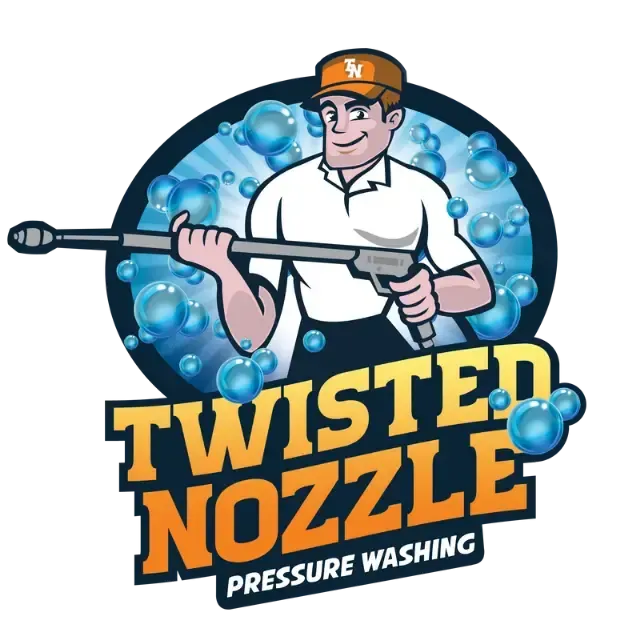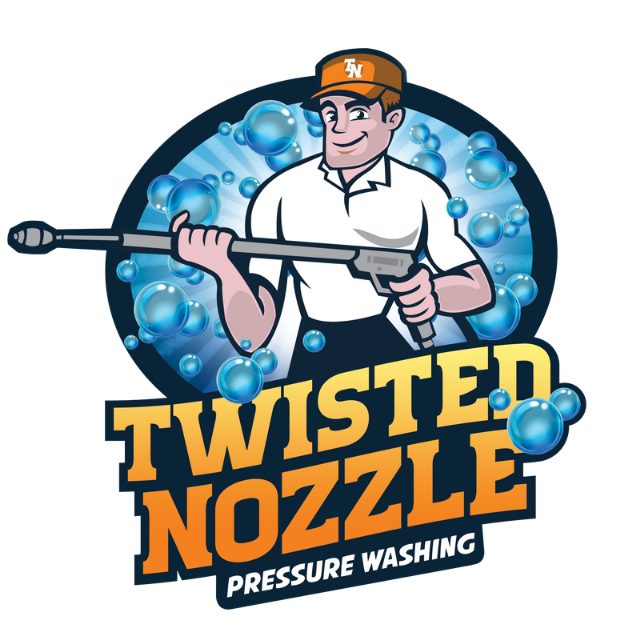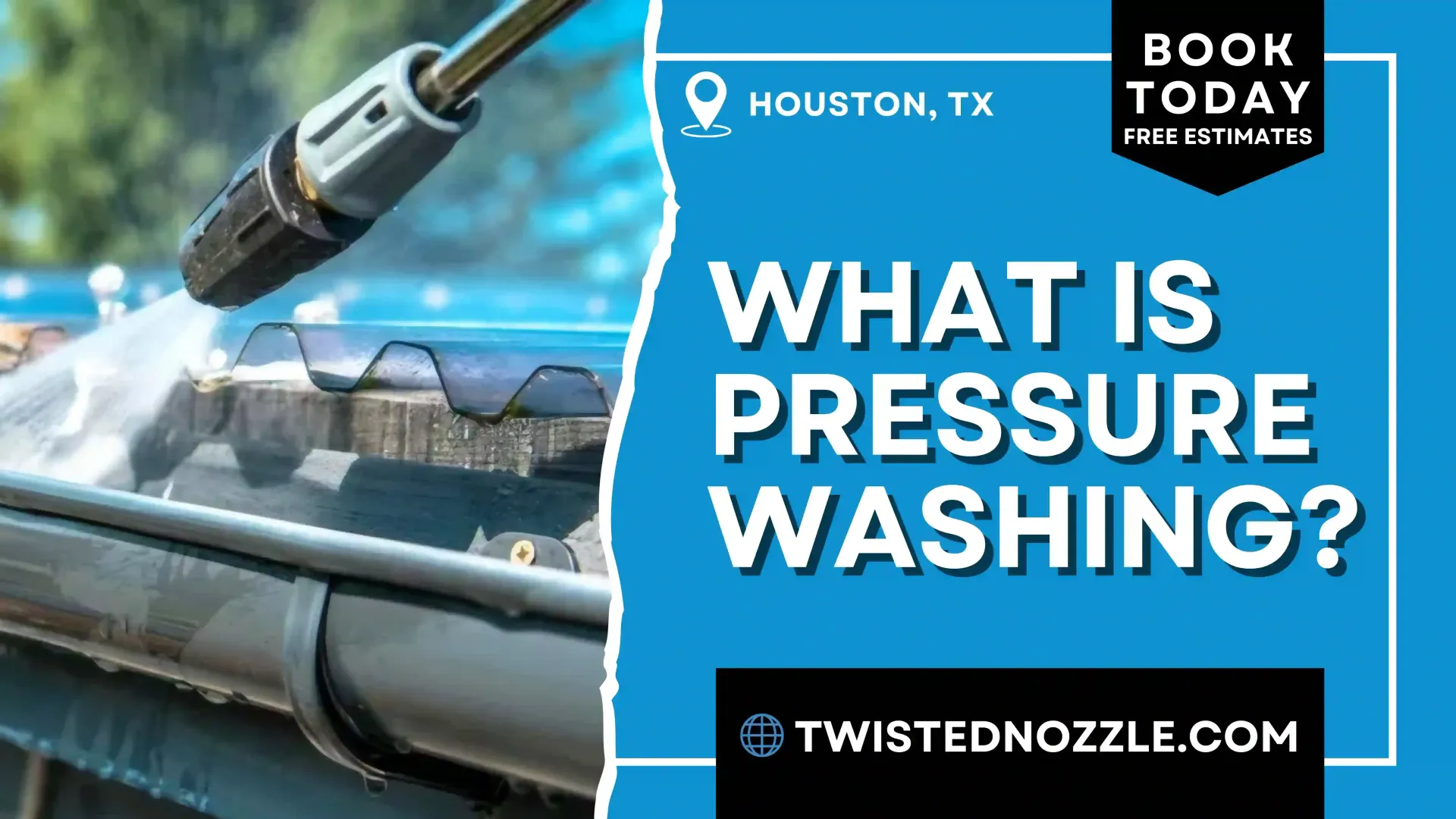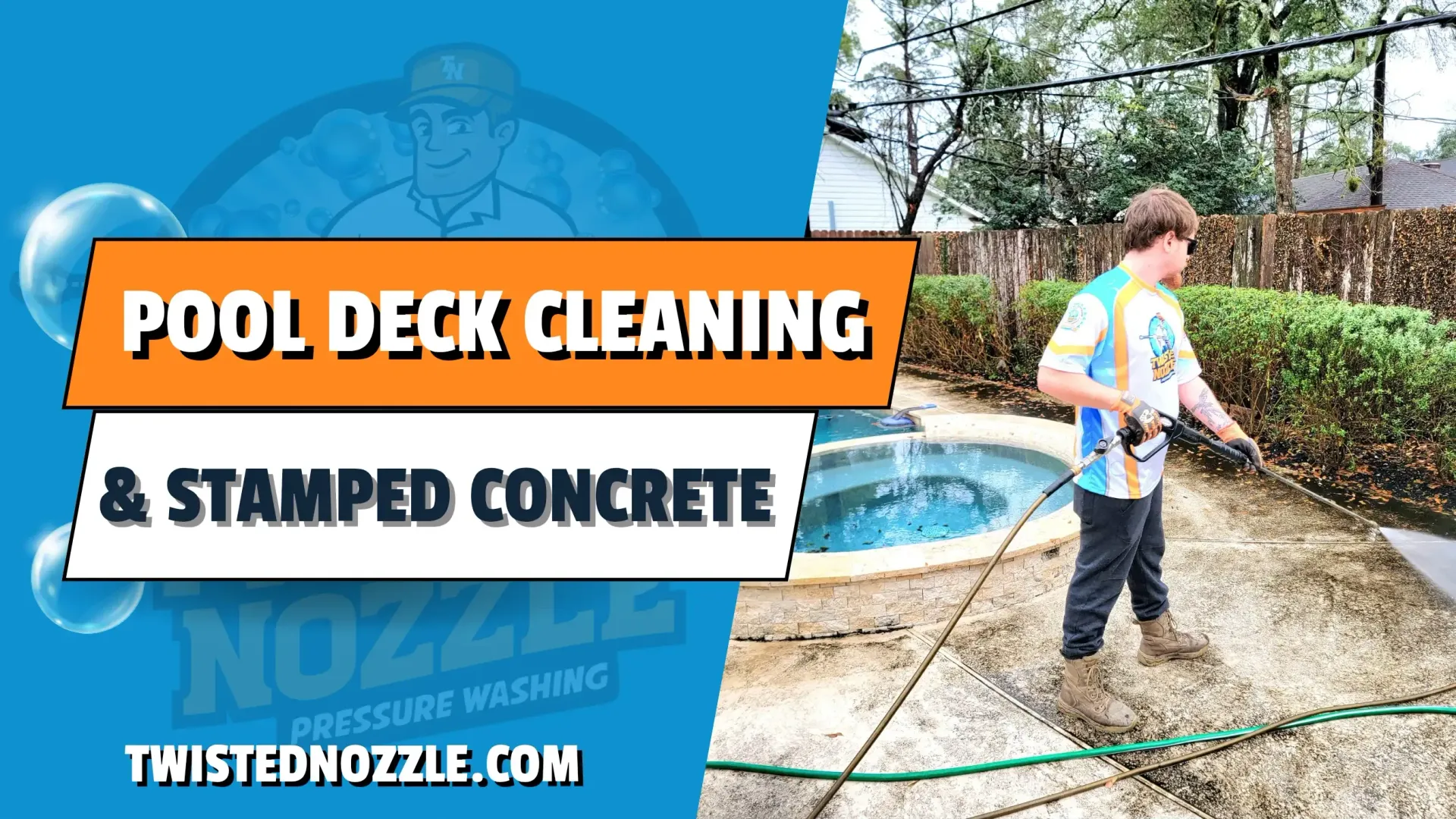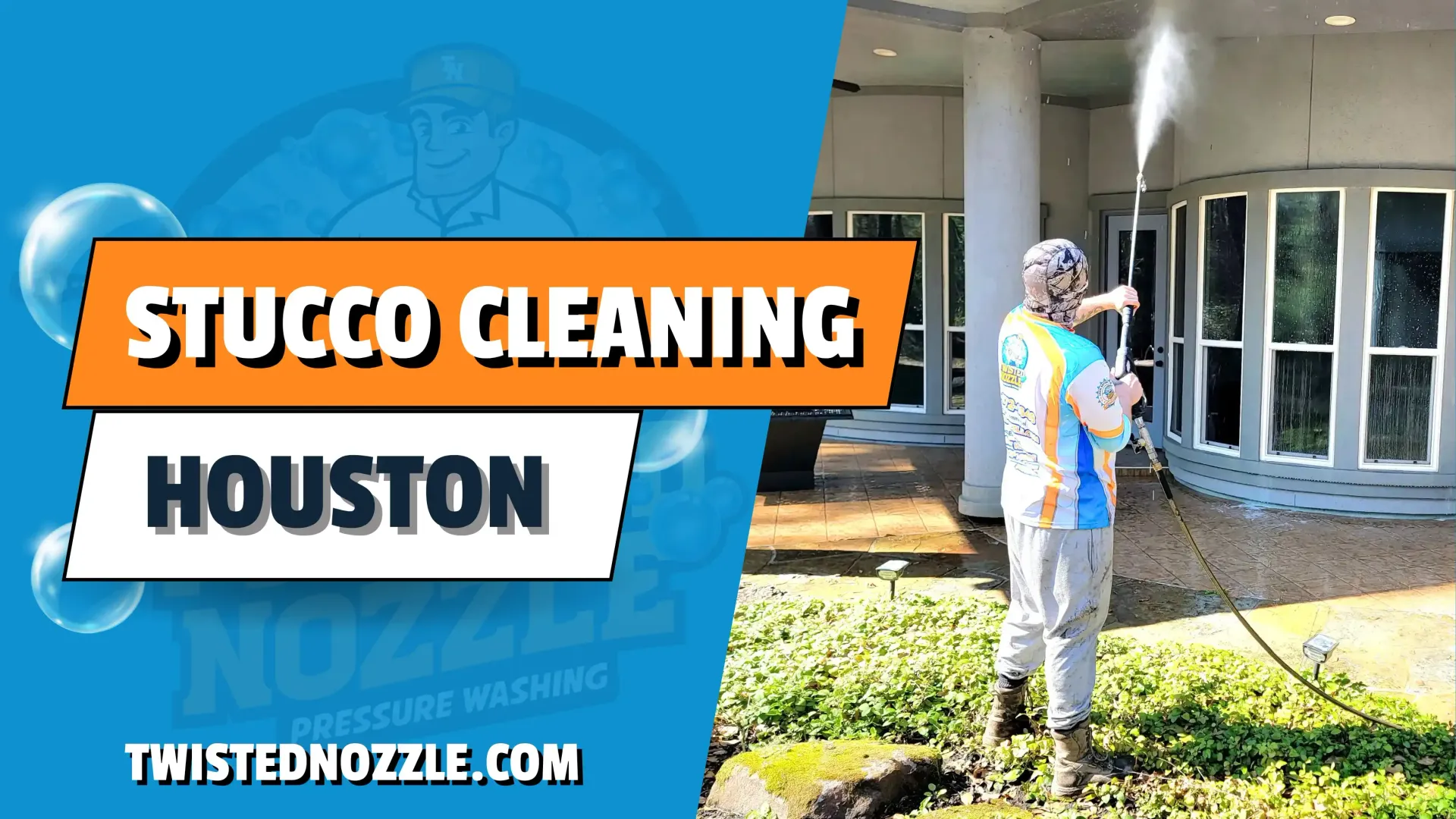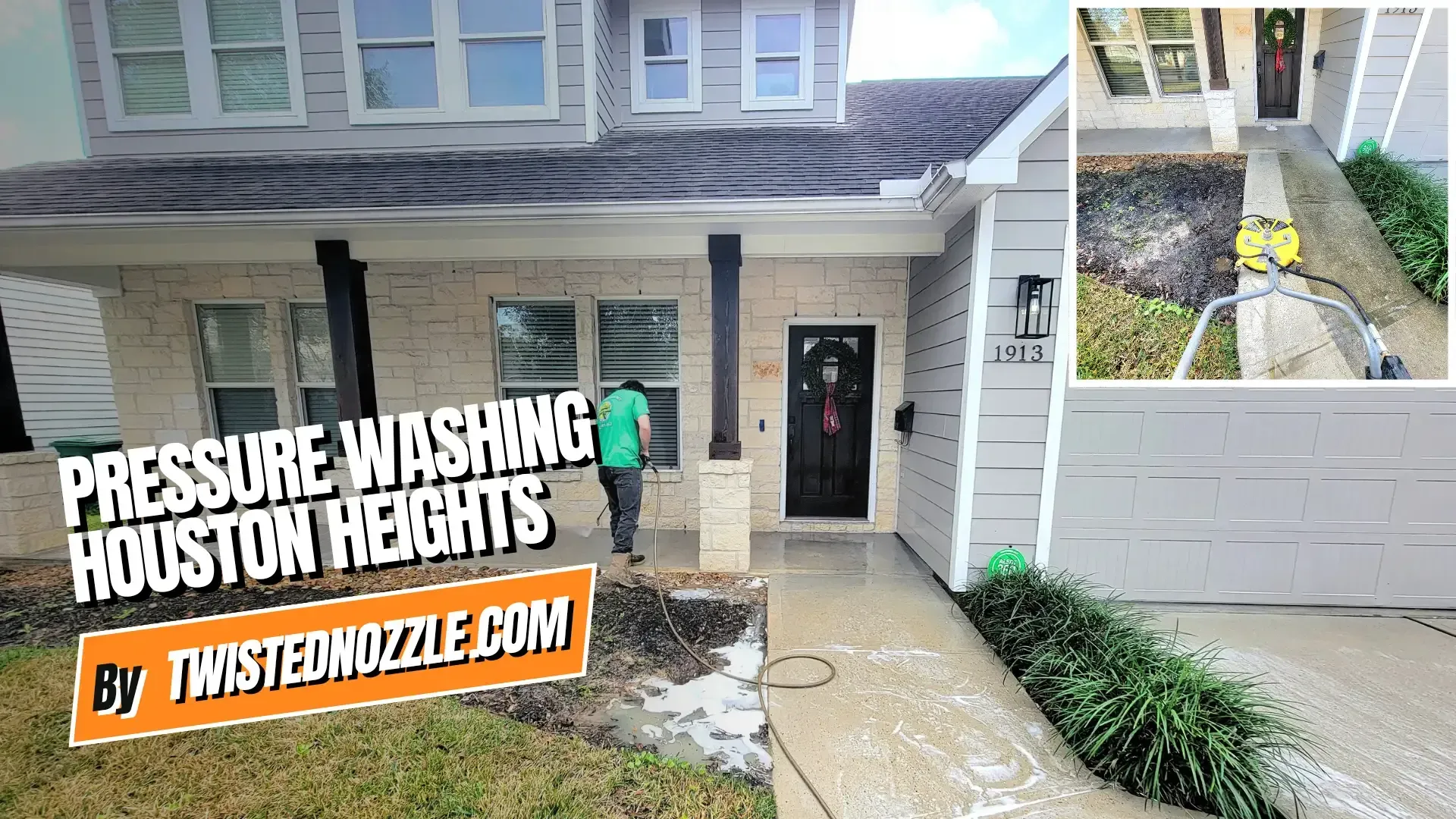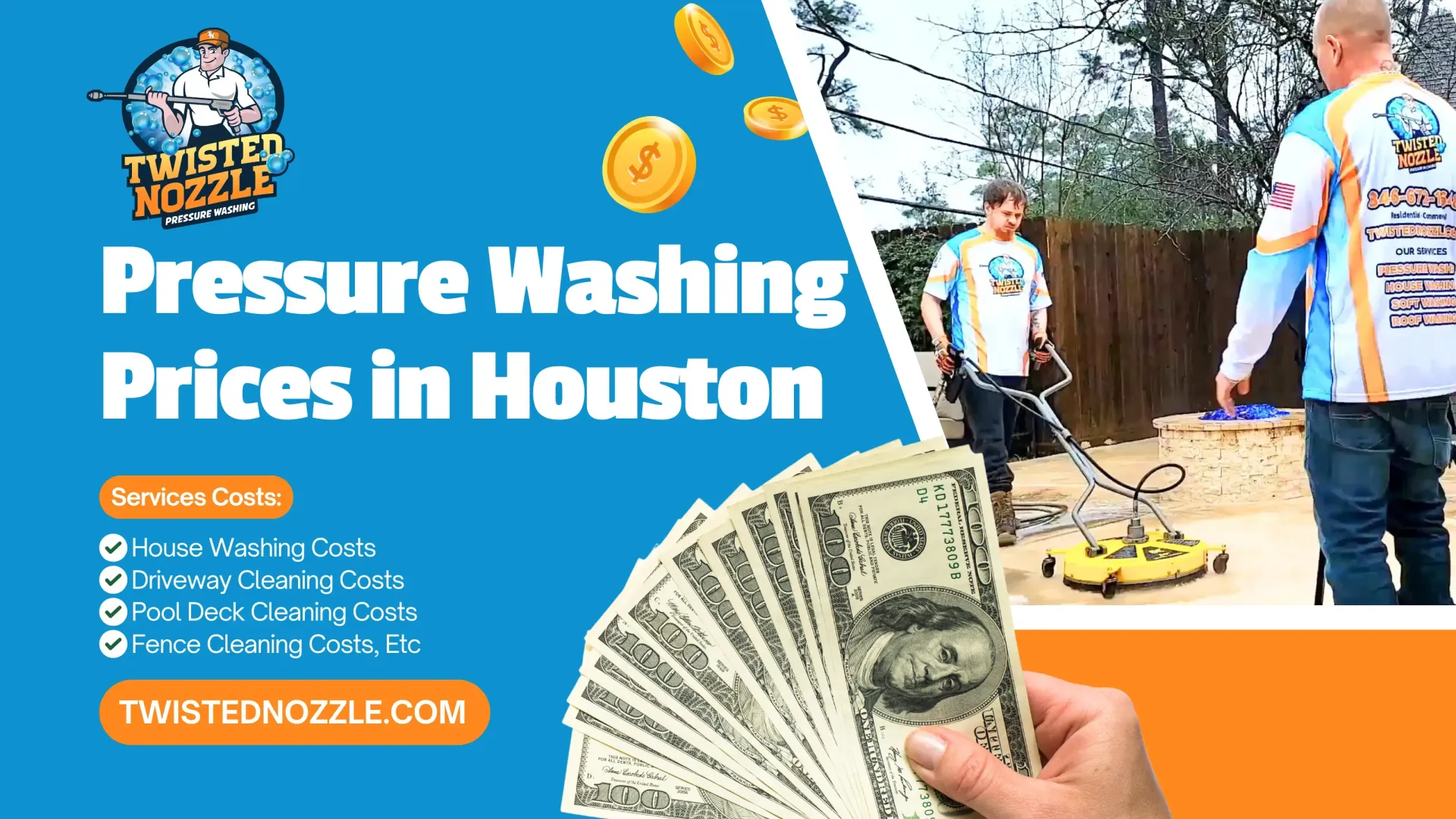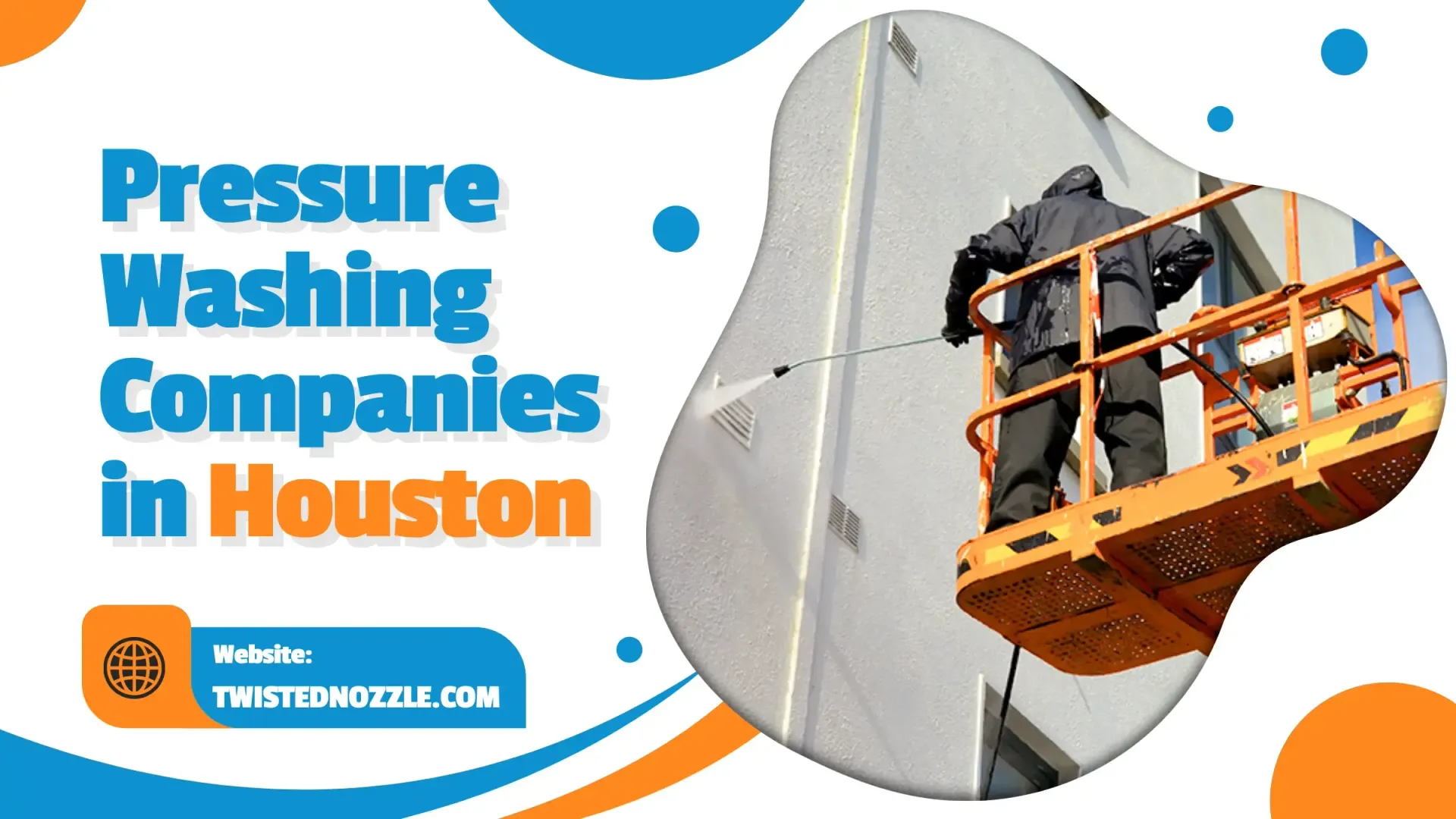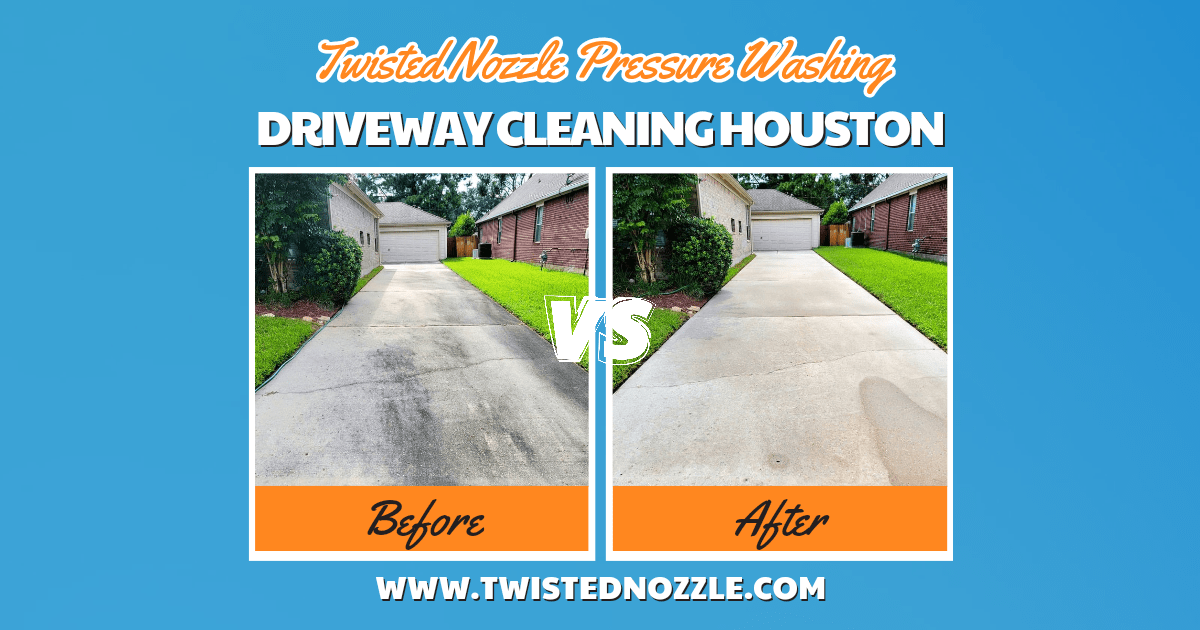What Is Pressure Washing? A Complete Guide
Learn About Pressure Washing, Its Benefits, And The Surfaces It Keeps Clean
When it comes to maintaining the cleanliness and curb appeal of homes, businesses, and vehicles, pressure washing has become a trusted solution. But what exactly is pressure washing, and why has it become such a sought after service?
At Twisted Nozzle, Houston’s top-rated choice for residential and commercial exterior cleaning, we’ll walk you through everything you need to know about pressure washing. From the benefits to the types of services, the cost, and the surfaces you can clean, this comprehensive guide has it all.
What Is Pressure Washing?
What is pressure washing? Pressure washing, also known as power washing, is the process of using high-pressure water to remove dirt, grime, mold, algae, paint, and other contaminants from outdoor surfaces. Pressure washers can produce water at pressures ranging from 750 to 30,000+ PSI (pounds per square inch), making it highly effective for both residential and commercial cleaning tasks.
The water pressure helps penetrate deep into porous surfaces, dislodging contaminants that standard cleaning methods can’t reach. Additionally, it’s eco-friendly because it relies primarily on water, reducing the need for harsh chemicals.
How Does Pressure Washing Work?
Pressure washing is a highly effective method for cleaning exterior surfaces, but have you ever wondered how it actually works? The process is quite simple, yet powerful.
The Science Behind Pressure Washing
Here's a step by step breakdown:
- Pump and Engine: A pressure washer is equipped with a pump and engine that work together to generate high pressure.
- Water Intake: The pressure washer draws in water from a hose or tank, which is then pressurized by the pump.
- Nozzle and Spray Tip: The pressurized water forced through a small nozzle or spray tip, which accelerates the water to high velocities.
- Cleaning Power: The high pressure water jet is directed at the surface, using a kinetic energy to dislodge and remove dirt, grime, and other substances.
Key Factors in Pressure Washing
To achieve optimal results, several factors come in to play:
- Pressure: Adjust setting based on surface type (e.g., wood, concrete, glass) and dirt level to prevent damage or ineffective cleaning.
- Flow Rate: Measured in gallons per minute (GPM), it balances cleaning speed and water consumption. Higher GPM speeds up cleaning but increases water usage.
- Nozzle Angle and Distance: Optimize angle (wide fan to narrow jet) and distance (12-24 inches) for effective cleaning without damage.
- Detergents/Cleaning Solutions: Use specialized solutions for specific stains (e.g., oil, mold) or surfaces, and follow manufacturer instructions.
By understanding how pressure washing works, you can better appreciate the importance of proper technique, equipment maintenance, and safety precautions to achieve outstanding cleaning results while protecting your property.
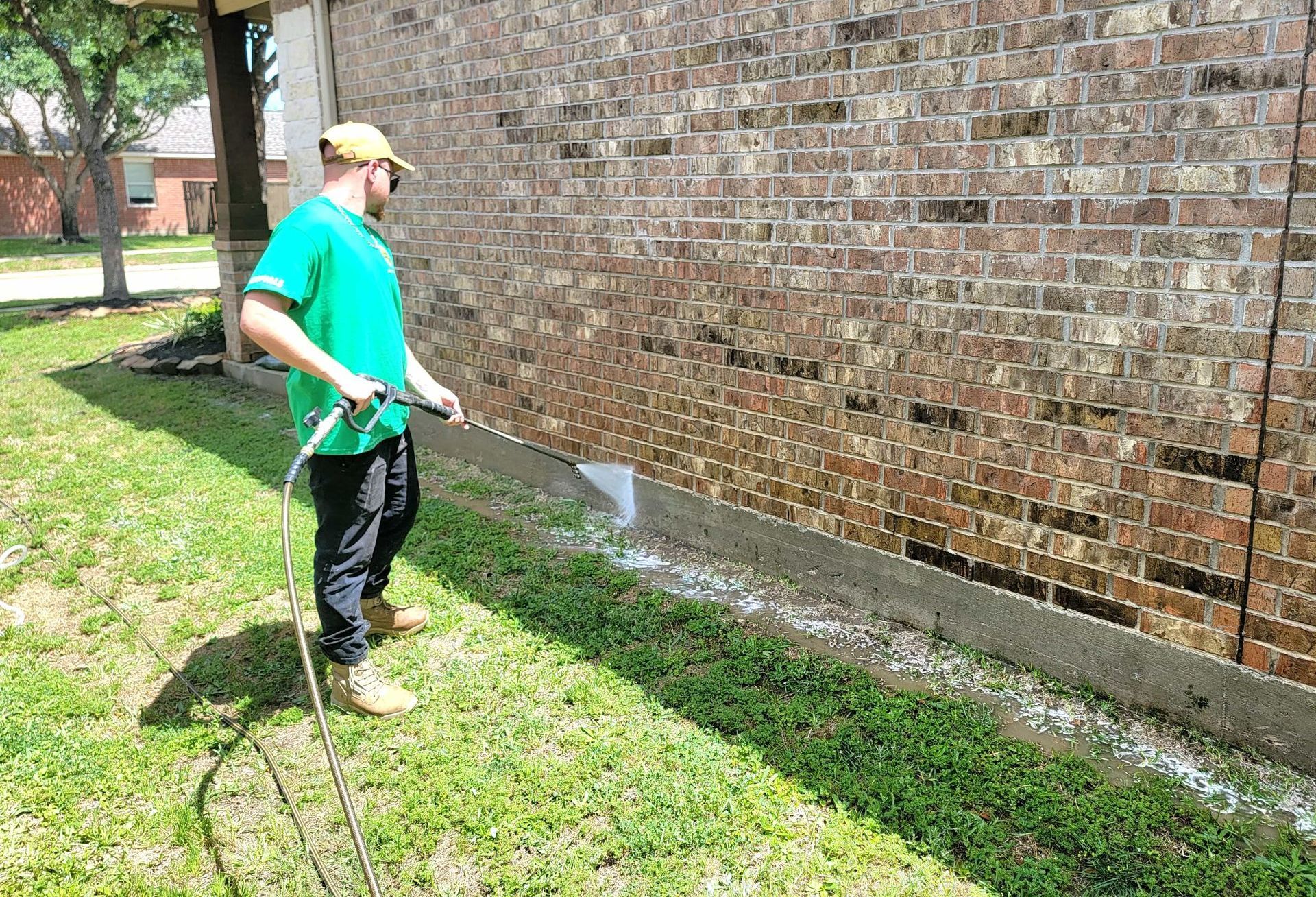
Types of Pressure Washing Services
1. Residential Pressure Washing
Homeowners rely on pressure washing to maintain their property’s appearance and prevent long term damage caused by algae, dirt, and mildew.
Residential Pressure Washing Services Include:
- House Washing: Removes dirt, mold, and mildew from siding, brick, or stucco.
- Driveway Cleaning: Eliminates oil stains, dirt, and tire marks (learn more about our driveway cleaning)
- Deck and Fence Cleaning: Restores wood by removing algae, grime, and graying.
- Roof Soft Washing: Uses low-pressure techniques to clean delicate roofing materials like shingles.
Why It Matters? Regular residential pressure washing prevents surface degradation and enhances curb appeal. Homeowners in Houston often schedule these services before listing their properties for sale between 2% to 5% higher than before pressuring washing. (Source: PropertySpark)
2. Commercial Pressure Washing
Businesses and commercial properties must maintain a clean appearance to attract customers and comply with health standards.
Commercial Pressure Washing Services Include:
- Building Washing: Keeps storefronts, restaurants, and office exteriors looking professional.
- Parking Lot and Garage Cleaning: Removes oil, debris, and stains that could turn off customers.
- Graffiti Removal: Erases unwanted graffiti from walls and signs.
- Restaurant Cleaning: Power washes outdoor patios and walkways for cleanliness.
Why It Matters? A clean property signals professionalism and can attract more customers increasing your profits while protecting against liability issues caused by slippery surfaces.
3. Fleet Pressure Washing
Fleet cleaning is essential for companies with trucks, vans, or other vehicles. Regular washing helps improve the brand image, keeps vehicles in top condition, and prevents buildup that could lead to damage.
Fleet Pressure Washing Services Includes:
- Truck Washing: Removes dirt, grime, and salt from trucks and trailers.
- Heavy Equipment Cleaning: Keeps construction and industrial equipment running efficiently.
- Public Transport Cleaning: Maintains the cleanliness of buses, taxis, and delivery vehicles.
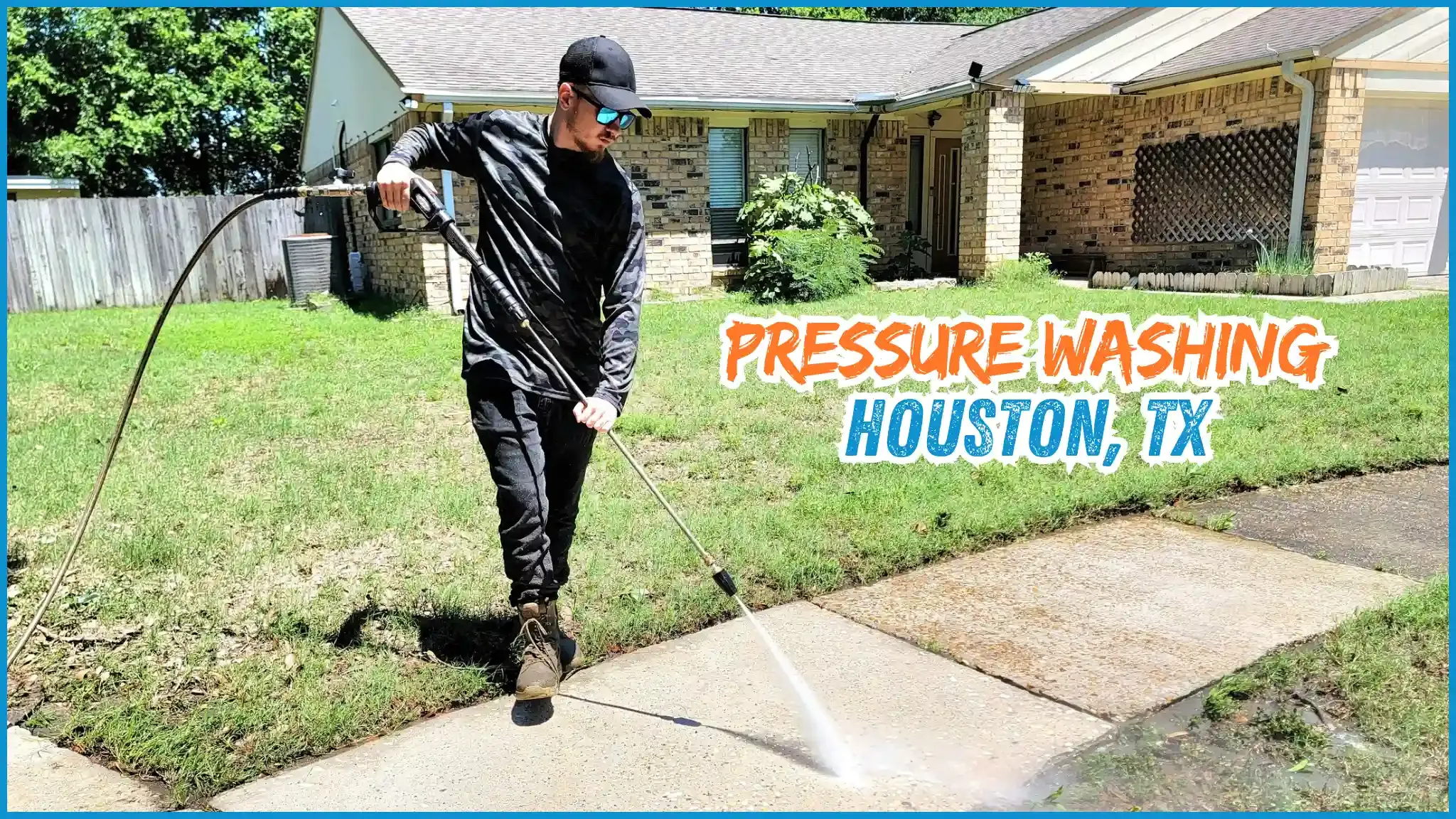
The Benefits of Pressure Washing
1. Increased Property Value
According to some real estate experts, pressure washing can boost home values by up to 10% by enhancing curb appeal. Clean siding, driveways, and fence cleaning make a great first impression on potential buyers.
2. Prevents Long Term Damage
Dirt, mold, algae, and mildew can erode surfaces over time, leading to expensive repairs. Pressure washing removes these elements before they cause permanent damage.
3. Healthier Environment
Mold, mildew, and algae are not only unsightly but can also pose health risks, especially for people with allergies or respiratory conditions. Regular cleaning helps maintain a healthy environment.
4. Cost Effective Maintenance
Routine pressure washing prevents costly repairs by keeping surfaces clean and well-maintained. For example, driveway pressure washing is less likely to develop cracks and stains.
How much Does it Cost To Hire a Pressure Washer?
The cost of hiring a professional pressure washer depends on several factors, including the service provided, size of the area, surface material, and location. Here’s a breakdown of average pressure washing costs for various services:
- House Washing: $250 - $600 (depending on the square footage)
- Driveway Cleaning: $100 - $300
- Roof Soft Washing: $450 - $700
- Commercial Building Cleaning: $0.10 - $0.30 per square foot
- Fleet Washing: $50 - $150 per vehicle
At Twisted Nozzle, we provide free estimates for all services for pressure washing Houston. Contact us today for transparent pricing and expert recommendations!
Pressure Washing Can Be Used On A Variety Of Surfaces
Including the following surfaces:
- Concrete: Driveways, sidewalks, and patios.
- Wood: Decks, fences, and outdoor furniture (requires soft washing).
- Vinyl and Brick: Exterior siding and walls.
- Metal: Fences, gates, and industrial equipment.
- Roofs: Asphalt shingles and tile (using soft washing methods).
Each surface requires the correct nozzle type and PSI to avoid damage. For example, wood surfaces benefit from lower pressure, while concrete can withstand higher PSI levels but be careful not to damage your concrete.
Pressure Washing vs. Soft Washing
Not all surfaces can handle the high pressure of traditional pressure washing. That’s where soft washing comes in. Soft washing uses low-pressure water combined with specialized cleaning solutions to remove dirt and organic growth from more delicate surfaces like roofs and painted exteriors.
If you’re unsure which method is best for your project, Twisted Nozzle offers both services and can recommend the right solution for your needs.
DIY Pressure Washing vs. Hiring a Professional
While renting a pressure washer from your local hardware store may seem like an easy way to save money, there are risks involved:
- Equipment Damage: Incorrect pressure settings can damage surfaces.
- Safety Risks: Handling a pressure washer requires skill to avoid injuries.
- Inefficient Cleaning: Professionals have access to commercial-grade equipment for better results.
Hiring a professional service like Twisted Nozzle Pressure Washing ensures safe, efficient, and long-lasting results without the hassle of doing it yourself. Get a free quote today.
How Often Should You Pressure Wash?
The frequency of pressure washing depends on several factors:
- Climate: In humid areas like Houston, surfaces accumulate mold and mildew more quickly.
- Usage: High-traffic areas like driveways and patios may need more frequent cleaning.
- Surfaces: Painted or delicate surfaces should be washed less often to avoid wear.
As a general rule of thumb for how often should you pressure wash, homeowners should pressure wash at least once a year, while commercial properties may need cleaning quarterly or semi-annually due to the higher foot traffic.
Conclusion
Pressure washing plays a critical role in maintaining the cleanliness, safety, and value of both residential and commercial properties. From homes to businesses, vehicles, and public spaces, it offers an efficient way to remove dirt, grime, and contaminants that could otherwise cause long-term damage. Regular cleaning ensures that surfaces remain in top condition, extending their lifespan and creating a healthier environment.
Contact Twisted Nozzle Pressure Washing to schedule your professional pressure washing in Houston and nearby areas. Call us at (346) 672-1648
or visit our website below. Let us help you maintain your property’s curb appeal and protect your investment today!
Twisted Nozzle Pressure Washing
www.twistednozzlepressurewashing.com
Pressure Washing FAQs
Contact Twisted Nozzle
SHARE THIS BLOG
LATEST PROJECTS
